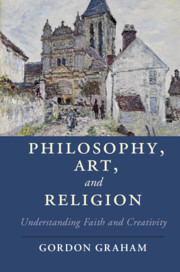2 - Sacred Music
Published online by Cambridge University Press: 06 August 2018
Summary
Music has a very long historical connection with religion, having played a part in the religious worship of virtually all of the world's religions. The origins of Indian classical music, used by both Hindus and Sikhs, can be traced back to the Vedas, Hindu scriptures that date from 1700– 1100 BCE. Records show that music was used for worship in the Jewish Temple built by Solomon around 950 BCE. In China, music had received official recognition as an important element in ritual by 1000 BCE, and its influence spread to many other parts of Asia. Chanting is integral to the practice of worship and meditation in Tibetan Buddhism. Even in religious traditions where music is not expressly employed, and may even be officially prohibited, it can be present in a disguised form. For example, while music plays no part in orthodox Islamic worship, the “adhan” or call to prayer undoubtedly has a musical quality to it. Even more strikingly, the widespread and highly valued practice of reciting the Quran at religious ceremonies is sufficiently intoned that it can in fact be written down in musical notation.
In some cases, religious music is very simple – just the human voice chanting, a bell ringing, or the beat of a single percussion instrument. In others, it is very complex and ornate, as in a polyphonic setting of the Christian Mass or the classical Indian raga. As these examples, suggest, religious music can be both transmitted by tradition and purposefully composed by professional musicians. Most often, religious music takes the form of singing, words sung rather than said. For several centuries, despite its origins in the Jewish Temple, Christianworship permitted vocal music only and rejected the use of instruments. “In place of playing the tympani,” the great theologian Gregory of Nazianzus declared, “let the singing of hymns resound.” This preference for the human voice continues to be the mark of some Christian denominations. In places where this restriction came to an end and instruments were used to accompany words, it was not long before instruments came to be used on their own, with the supposition that they couldmake awordless contribution of their own to worship.
- Type
- Chapter
- Information
- Philosophy, Art, and ReligionUnderstanding Faith and Creativity, pp. 32 - 57Publisher: Cambridge University PressPrint publication year: 2017

